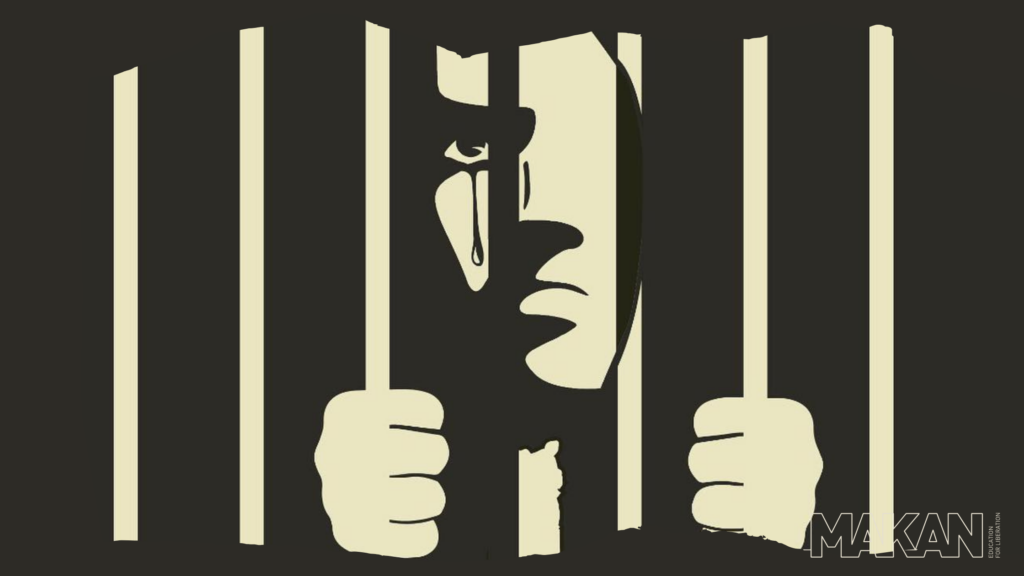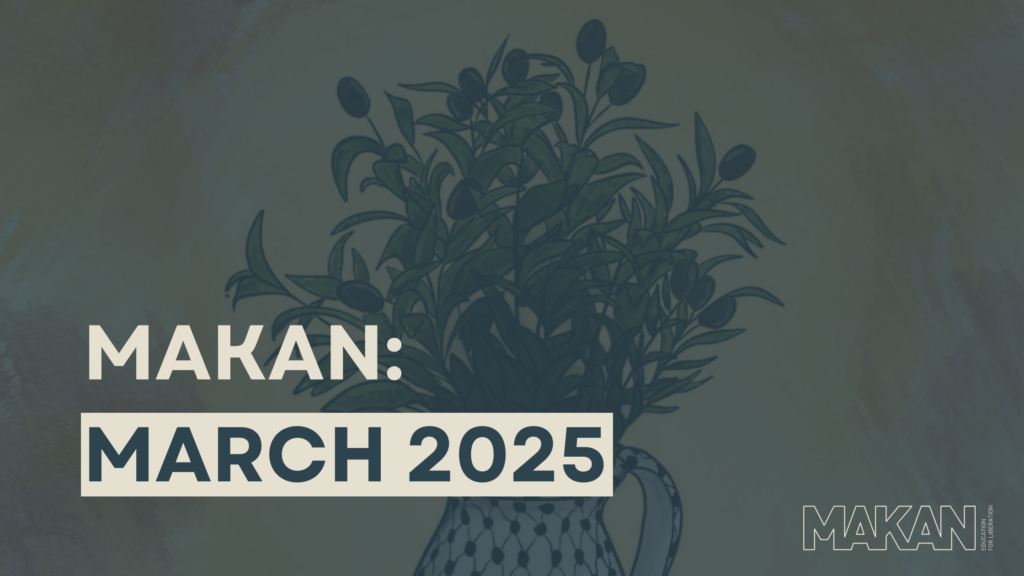BDS and the remains of the University, a conversation on resistance with Judith Butler

I was honoured to be invited by Birkbeck for Palestine, a coalition of staff and students at Birkbeck University in solidarity with Palestinian liberation, to host an impromptu conversation on ‘BDS and the remains of the university’ on 14 March with world renowned scholar Judith Butler; author and senior lecturer Luke Williams; poet, writer and lecturer Dr Penny Newell; and writer and BBK4Palestine and Sew for Palestine activist Rogelio Braga.
The discussion couldn’t have been more relevant, occurring at a time when the complicity of educational institutions in the oppression of Palestinians had been writ large. Just a few days before, immigration agents had seized Columbia University student Mahmoud Khalil, leader of last years’ protests, seeking to deport him. Meanwhile, Columbia’s administration had expelled, suspended, or revoked the degrees of 22 students for protesting against the genocide. A week earlier, Yale Law School had suspended Dr Helyeh Doutaghi, Deputy Director of the Law and Political Economy (LPE) Project and Associate Research Scholar, within 24 hours of AI generated smears accusing her of being a terrorist, leaving her to endure a flood of online harassment, death threats and abuse. She was given only a few hours notice to attend an interrogation by an attorney Yale Law School had retained whose public profile includes “Israel” listed as a “service” he provides and whose portfolio boasts advising “the world’s largest aerospace and defense companies.”
Meanwhile, Israel had already killed over 150 Palestinians and injured over 600 more since the so-called ceasefire, imposing a total siege on Gaza blocking food, water, fuel, medical supplies, and cutting off electricity amidst unthinkable sanitation and health conditions, backed by a US administration more explicit than ever before in calls for ethnic cleansing – looking to ‘resettle’ Palestinians in Somalia, Somaliland, and Sudan. Just a few days later Israel would resume in full its savage bombardment of Gaza, killing over 400 people including 174 children in one day, their deaths barely mentioned by the mainstream media.
The urgency of the conversation was palpable in the packed lecture hall, with people being turned away at the door as there was not enough room for everyone. The questions slated for discussion were all critical: How can students and academics in western universities meaningfully resist complicity in genocide? How can we fight for universities that are anti colonial in their institutional operations and financial relationships? And how can we build meaningful links between queer, trans and anticolonial scholarship and politics?
The discussion ranged from complicity through silence, through the use of language, and through material ties; the disfiguring of social responsibility in our educational institutions; the expansion of policing into civic spaces; the importance of mobilising around the Palestinian call for boycott, divestment and sanctions; resistance as a spectrum, not a hierarchy; what we can learn from Palestinians living on the frontline; and the implications of trying to get critical discussions into our educational spaces through the back door.
It is hard not to lose hope in the face of the ongoing genocide and the relentless efforts to quell any resistance. But the administrations of universities that have been ravaged by neoliberal reforms and where academic freedom is under threat are banking on exhausting students and academics who’ve been making a stand into backing down.
At such a pivotal moment, the value of political education in laying the ground for structural change couldn’t be more vital. And while there are now increasing attempts to get clearance for events like this one by keeping ‘Palestine’ out of the title, it’s essential to consider what more we might lose if we concede to institutional boundaries of the sayable. What’s more, our institutions should take note: despite the systematic attacks on educators and students, the fact that this event did not have enough space for those who wanted to participate tells us one thing—people are determined to keep on showing up to educate themselves about Palestine, perhaps more so than ever before.
Dr Aimee Shalan, Makan Director
Explore
Palestine 101
Learn the basics
Related posts
Palestinian Prisoners Day: A day of collective remembrance and solidarity
April 17th marks Palestinian Prisoners Day. A day of collective remembrance and solidarity with the thousands of Palestinians who have been imprisoned by Israel as…
BDS and the remains of the University, a conversation on resistance with Judith Butler
I was honoured to be invited by Birkbeck for Palestine, a coalition of staff and students at Birkbeck University in solidarity with Palestinian liberation, to…
Education as Liberatory Practice: Behind the Scenes with Makan’s Educational Programmes
March brought with it an indication of what is to come: the systematic gutting of higher educational institutions through the restructuring of departments focusing on…

